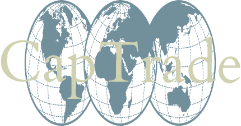Subsidies and Countervailing Duties
Capital Trade’s economic consultants assist law firms and companies in all phases of countervailing duty proceedings, from pre-petition assessment to countervailing duty order compliance monitoring and review. Our experience in U.S. countervailing duty cases is extensive, encompassing over one thirty different proceedings, involving dozens of different products from over ten countries. We also use our highly specialized skills in subsidy valuation in WTO subsidy disputes.
Defining the Parameters of an Investigation
Companies and law firms must address a number of technical issues in the early phase of every countervailing duty action. We assist clients in the analysis of these critical parameters, including:
Pre-petition subsidy research and assessment
Cost/benefit analysis of participation in a proceeding
Search for commercial benchmarks
Questionnaire Responses
One of the most difficult and critical elements of any countervailing duty proceeding is the preparation and/or analysis of government and company questionnaire responses. Government investigative agencies, such as the U.S. Department of Commerce, requires comprehensive data on grants, loans, tax incentives, input purchases, and other potential forms of government assistances. Capital Trade has extensive experience in:
Analyzing questionnaire responses in order to determine potential critical issues that can be developed in the case
Research on information that may lead to new subsidy allegations based on information contained in initial questionnaire responses
On-site review of accounting records
Drafting narrative questionnaire responses and technical appendices
Coordinating the collection of data from multiple locations
Preparing data for submission to the Department of Commerce
Analyzing Commercial Benchmarks
Every countervailing duty proceeding requires the analysis and calculation of commercial benchmarks by which to assess the magnitude of potential subsidies. Capital Trade has worked on numerous countervailing duty proceedings involving subsidy programs as diverse as low cost loans to government purchases at more than market value. We assist our clients by researching public information for potential commercial benchmark information, such as:
Various interest rates and other measurements of the cost of borrowing money, including creditworthiness analysis
World market prices for inputs
International freight and import taxes
Land prices
Capital asset prices
Verification and Public Hearings
On-site verification of submitted information is a standard part of countervailing duty investigations. For domestic industries, Capital Trade assists in providing key arguments for verification, based on information developed in the case (as described above). For foreign companies and governments, Capital Trade assists in preparing for these arduous audits, and provides assessments of the ensuing official verification reports. In addition, we support law firms and companies in crafting technical arguments for briefs and other submissions. For companies facing verification, briefings or public hearings, Capital Trade can:
Provide technical arguments and analysis for briefs
Testify at public hearings
Meet with government officials
Prepare document traces
Represent clients at on-site verification
Strategic and Commercial Implication of Trade Actions
A company’s position on trade regulatory actions, such as countervailing duty proceedings, should be framed in conjunction with its overall business objectives. Capital Trade looks at how potential or actual trade actions can affect the whole enterprise, from domestic trade, global trade, and investment flows, to the day-to-day requirements of the MIS Department. We advise companies on:
Strategic risks and rewards associated with launching or participating in trade proceedings
Assessing the potential costs of trade cases, in terms of impact on sales and human resources.
Considering alternative business strategies
